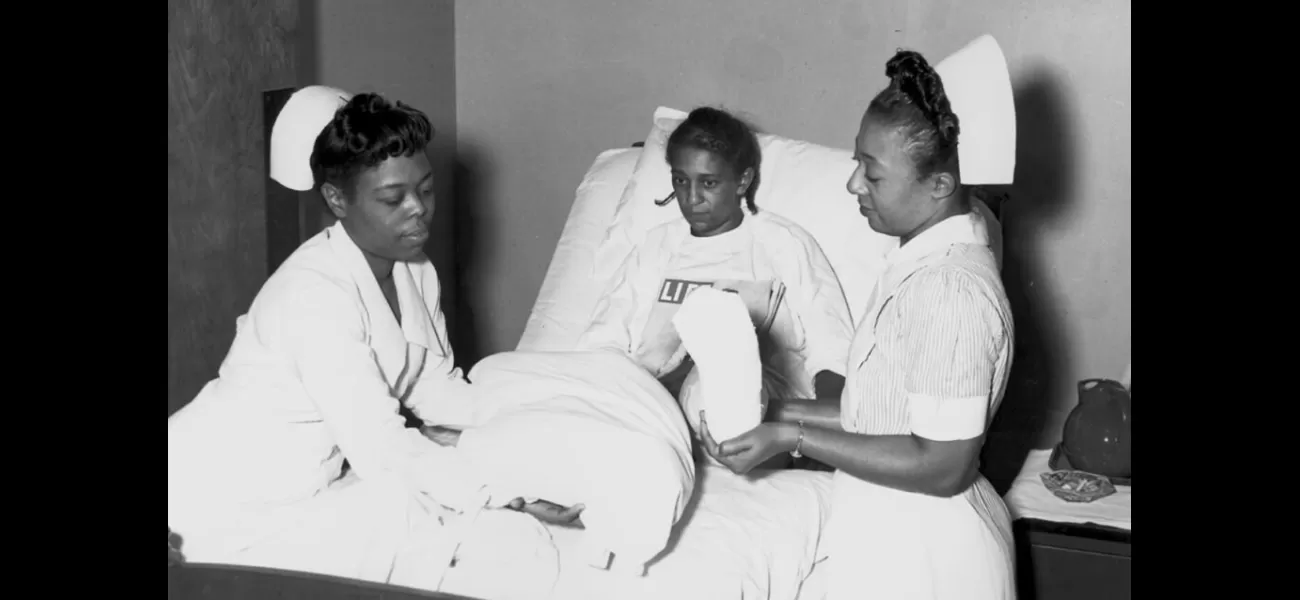Segregated hospitals, once a solution, now in danger.
A 2023 study found that hospitals catering to Black patients consistently have lower profits and revenues.
August 12th 2024.

In the past, Black hospitals were a source of pride and support for thriving Black communities. However, since the integration of hospitals under the Civil Rights Act of 1964, these hospitals have fallen into disrepair. Many of them have closed down and the few that remain are struggling to stay open. It's a sad reality that highlights the ongoing challenges faced by the Black community.
One such hospital is the Taborian Hospital in Mound Bayou, Mississippi. It was founded in 1942 to provide healthcare to Black patients during segregation. However, NPR reports that the hospital now stands empty and its future is uncertain. Despite a $3 million renovation a decade ago, the hospital was forced to close again due to an ownership dispute. Myrna Smith-Thompson, whose grandfather helped establish the hospital, now serves as the executive director of the civic group that owns the property. She explained that reopening the hospital would require millions of dollars in funding.
It's a similar story for many other Black hospitals across the country. Before the passage of civil rights legislation, there were over 150 Black hospitals. But as these hospitals began to compete with white hospitals, many of them were forced to shut down. Now, the remaining few are struggling with limited resources, as reported by VPM, Virginia's NPR affiliate in 2022.
Cassandra Newby-Alexander, a professor of Virginia Black history at Norfolk State University, explained the importance of Black hospitals in providing a humane and respectable alternative to the discriminatory treatment of African Americans in majority white hospitals. She highlighted how Black patients were often relegated to the attic or basement in these hospitals.
Even the original Richmond Community Hospital, which has a rich history of serving the Black community, is facing an uncertain future. Virginia Union University wants to use the land the hospital sits on to develop market-rate housing units, a plan that has sparked fear among some Richmond residents who worry that the hospital will be demolished.
The closing of Black hospitals has had a profound impact on the communities they served. As Bizu Gelaye, an epidemiologist and the program director of Harvard University's Mississippi Delta Partnership in Public Health, stated in an interview with KFF Health News, it has caused ripple effects that have disrupted the fabric of these communities.
A 2023 study published in the Journal of General Internal Medicine found that hospitals that primarily serve Black patients consistently have lower revenues and profits. The study's authors noted that this effectively assigns a lower value to the care of Black patients in the US healthcare system. To address these disparities, the study suggests that health financing reforms should eliminate the underpayment of hospitals that serve a large share of Black patients.
This is why it is essential for Black healthcare firms to prosper and grow in the current economy. As highlighted in a new report, these firms are in a unique position to provide quality healthcare to the Black community and play a crucial role in addressing healthcare disparities. It's time for us to support and invest in these firms to ensure that the Black community has access to the care they deserve.
One such hospital is the Taborian Hospital in Mound Bayou, Mississippi. It was founded in 1942 to provide healthcare to Black patients during segregation. However, NPR reports that the hospital now stands empty and its future is uncertain. Despite a $3 million renovation a decade ago, the hospital was forced to close again due to an ownership dispute. Myrna Smith-Thompson, whose grandfather helped establish the hospital, now serves as the executive director of the civic group that owns the property. She explained that reopening the hospital would require millions of dollars in funding.
It's a similar story for many other Black hospitals across the country. Before the passage of civil rights legislation, there were over 150 Black hospitals. But as these hospitals began to compete with white hospitals, many of them were forced to shut down. Now, the remaining few are struggling with limited resources, as reported by VPM, Virginia's NPR affiliate in 2022.
Cassandra Newby-Alexander, a professor of Virginia Black history at Norfolk State University, explained the importance of Black hospitals in providing a humane and respectable alternative to the discriminatory treatment of African Americans in majority white hospitals. She highlighted how Black patients were often relegated to the attic or basement in these hospitals.
Even the original Richmond Community Hospital, which has a rich history of serving the Black community, is facing an uncertain future. Virginia Union University wants to use the land the hospital sits on to develop market-rate housing units, a plan that has sparked fear among some Richmond residents who worry that the hospital will be demolished.
The closing of Black hospitals has had a profound impact on the communities they served. As Bizu Gelaye, an epidemiologist and the program director of Harvard University's Mississippi Delta Partnership in Public Health, stated in an interview with KFF Health News, it has caused ripple effects that have disrupted the fabric of these communities.
A 2023 study published in the Journal of General Internal Medicine found that hospitals that primarily serve Black patients consistently have lower revenues and profits. The study's authors noted that this effectively assigns a lower value to the care of Black patients in the US healthcare system. To address these disparities, the study suggests that health financing reforms should eliminate the underpayment of hospitals that serve a large share of Black patients.
This is why it is essential for Black healthcare firms to prosper and grow in the current economy. As highlighted in a new report, these firms are in a unique position to provide quality healthcare to the Black community and play a crucial role in addressing healthcare disparities. It's time for us to support and invest in these firms to ensure that the Black community has access to the care they deserve.
[This article has been trending online recently and has been generated with AI. Your feed is customized.]
[Generative AI is experimental.]
0
0
Submit Comment





